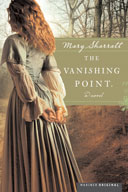



RSS: Blog FeedSubscribe to
Comments [Atom]
April 2007May 2007June 2007July 2007August 2007September 2007October 2007November 2007December 2007January 2008February 2008April 2008May 2008July 2008September 2008October 2008November 2008December 2008January 2009February 2009March 2009April 2009May 2009June 2009July 2009August 2009September 2009December 2009May 2010October 2010March 2011
History Buff is a site
for history lovers everywhere. It is also a site very interested in women
of the past. Although I (sadly) no longer have time to continue these interviews, here is an archive of Q&As about women's lives
in history. And please feel free to stop by History Buff's
sister site for archaeological discoveries making news today. Enjoy!

As an
historical fiction writer I am fascinated by news stories featuring the
past as it's unearthed and reimagined and brought to life. I spend a
large quantity of time searching for news in archaeology and history.
Once in a great while a new archaeological discovery will act as an inspiration
for what I'm currently writing. But most of the time the news stories
I read are simply interesting tidbits of history. Unfortunately, I have
disallowed comments because I travel so frequently that I can neither
monitor nor respond to them. But I would still love to share the history
that I find fascinating each day. So welcome! And feel free to visit my
website at www.michellemoran.com
or contact me at authormichellemoran at hotmail dot com.
Logo designed by Shaun Venish
Blog designed by Mia Pearlman Design
Q&A With Historical Fiction Author Mary Sharratt

*Tell us something surprising about women in 17th century
your novel THE VANISHING POINT begins.
Our view of women’s history tends to be sadly distorted. Too often we rely on lazy stereotypes that women in the past were always completely helpless and disempowered, or we base our view of women in previous centuries on the Victorian model.
*Your novel also takes places in
in
The Thirteen Colonies were quite heterogeneous. Thus, women’s lives in
All the above problems were exacerbated by the fact that most people lived on far flung plantations; the social support networks that might have helped women back in
*Often, historical fiction writers will choose to tell the story of an
extraordinary woman who defied the conventions of her time, like Hannah
Powers. In 17th century
Married women spent most of their fertile years bearing and raising children, while, at the same time, contributing to their family economy by working on the farm or in the family business. The work-life balance is nothing new. Upper class women supervised, trained, and often disciplined their servants. The average woman took care of the medicine for her household as far as minor ailments were concerned. Most kitchen gardens contained medicinal herbs. The average woman was expected to help care for the sick and aged in her community and to attend childbirths even if she had borne no children herself. The average woman could expect to spend her few “leisure” hours spinning wool and flax to keep her family clothed. Thanks to the Protestant emphasis on Bible reading, most women of the middling and upper classes were literate and would teach their daughters to read and write, as well. Pamphlets were circulated, spreading new ideas. The 17th century was a period of profound social change and the average woman would have played some part in that rapidly changing society.
*In what ways are May and Hannah Powers not distinctive of their time (17th
century) and country (
With May’s character I wanted to explore what would happen to a late 17th century woman who was determined to carve out her own destiny and who demanded the same liberties, both social and sexual, as a man. Her uncompromising will to live out her desires makes her a rebel, not only for her sexual passions but also for her lust for life. She is a woman who refuses to be ruled by anyone. She is definitely transgressive in the choices she makes.
Hannah, her younger sister, is very different. Her physician father has given her a secret and forbidden education in medicine and surgery, something she is not legally allowed to practice. Only by crossing the ocean to the frontier of an unknown world, can she hope to make use of her talents and live out her dreams.
*Are you working on another historical fiction novel, and if so, who will
be your protagonist?
The Art of Memory, my recently completed fourth novel, is a ghost story set in and around

Thank you Mary! And feel free to visit Mary Sharratt online for more information about her novel The Vanishing Point.







